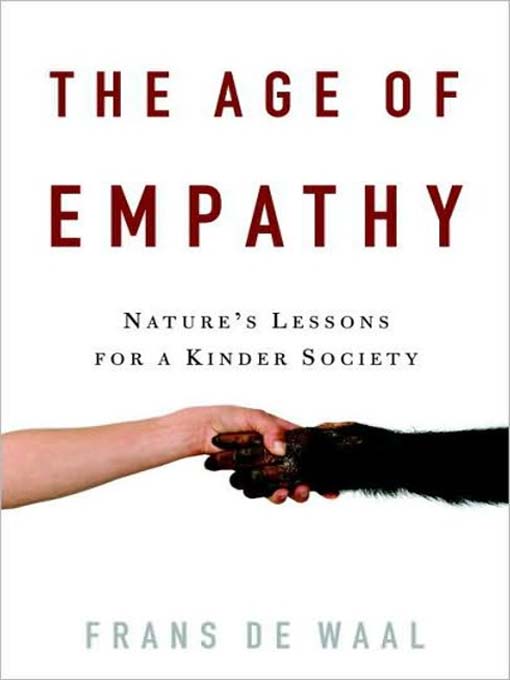
The Age of Empathy
Nature's Lessons for a Kinder Society
کتاب های مرتبط
- اطلاعات
- نقد و بررسی
- دیدگاه کاربران
نقد و بررسی

Biologist and ethologist Frans de Waal examines the role of empathy in human society and the animal world. Alan Sklar delivers an in-depth narration of fascinating stories about the ability of mammals to show sincere empathy, as well as examples portraying the lack of empathy sometimes displayed by humans. Sklar makes his way through scientific terms and Dutch phrases with accuracy and skill. The author feels that a more empathetic society would provide the deep human contact that many people need and find lacking today. He provides timely examples of the recent financial meltdown and the selfishness of so many involved. Can humans learn from animals? As this analysis introduces listeners to the earliest mammals, fascinating connections emerge. B.J.P. (c) AudioFile 2010, Portland, Maine

June 8, 2009
De Waal (Chimpanzee Politics
), a renowned primatologist, culls an astounding volume of research that deflates the human assumption that animals lack the characteristics often referred to as “humane.” He cites recent animal behavior studies that challenge the “primacy of human logic” and put animals on a closer behavioral footing with humans. Based on the studies of mammals, from primates to mice, de Waal proposes that empathy is an instinctual behavior exhibited by both lab rats and elephants. But de Waal's aim isn't merely to show that apes are transactional creatures with a basic understanding of reciprocity—but to reveal that the idea that humans are naturally calculating, competitive and violent is grounded in a falsehood willfully and selfishly perpetuated. Throughout the book, de Waal illustrates how behaving more like our wild mammalian cousins may just save humanity. His contention, colored by philosophical musings and fascinating anecdotes of observed emotional connections between animals, argues persuasively that humans are not greedy or belligerent because animals are; such traits are far from organic or inevitable but patently manmade.

























دیدگاه کاربران